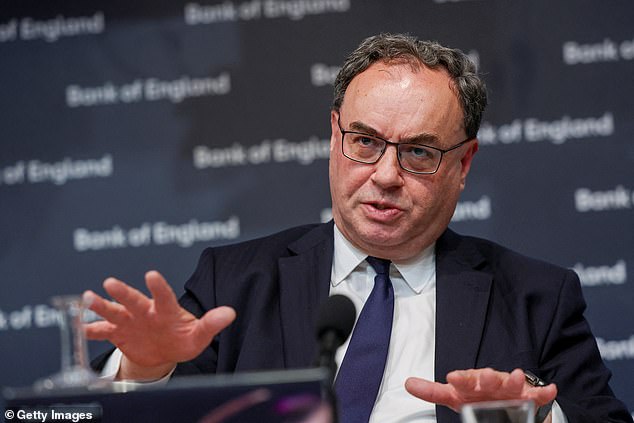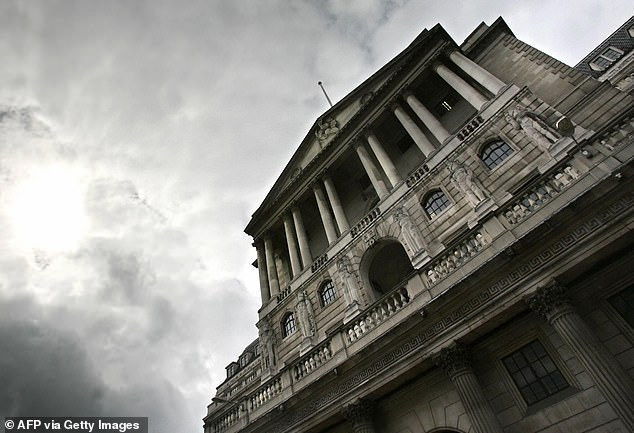Governor of the Bank of England Andrew Bailey is not known for taking bold decisions. But if ever there was an opportunity to do so, it is now.
For the Bank’s Monetary Policy Committee (MPC) – which Bailey heads – is set to review interest rates today. At 5.25 per cent, the rate is currently at a 15-year high.
Cutting it by at least a quarter of a percentage point would avoid economic stagnation and possibly even stave off a recession.
The latest official data shows that the economy shrank by 0.3 per cent in October, with manufacturing, construction and the service sectors all slowing down.
So now is the time to show economic courage and reduce rates. Such a advance would show that the UK, free from the constraints of the European Union, backs growth.

Governor of the Bank of England Andrew Bailey is not known for taking bold decisions. But if ever there was an opportunity to do so, it is now
And yet analysts are expecting the Bank’s nine-person decision-making committee to keep interest rates at 5.25 per cent.
Mr Bailey believes this is vital to taming inflation and easing the cost of living. But there is accumulating evidence that global prices are coming down – and with a bump.
The supply chain issues caused by Covid and the war in Ukraine are passing into history. The next challenge facing global commerce could well be disinflation: falling prices.
Meanwhile, away from the UK, inflation is dropping towards the 2 per cent target in both North America and continental Europe – and with surprising speed.
Forecasters, including bankers at Goldman Sachs, have been rewriting their predictions. Goods are getting cheaper, fast.
Here in the UK, fears of a wage-price spiral – whereby prices and wages boost concurrently – are dissipating, in spite of disruptive strikes by Aslef train drivers and the junior doctors.
Average pay increases fell to 7.2 per cent last month, way down from an 8.5 per cent peak in August of this year. And the markets are responding to this fall in prices and wages.

The Bank of England’s Monetary Policy Committee (MPC) – which Bailey heads – is set to review interest rates today. At 5.25 per cent, the rate is currently at a 15-year high
The return on British government bonds dropped in latest trading by 0.05 per cent to 3.9 per cent. Traders are now betting that the Bank of England will cut rates to 4.25 per cent by the end of next year. In 2021, the Bank of England was notoriously slow to recognise that inflation was about to spiral.
Eventually, taking a direct from the American central bank the Federal Reserve, interest rates were lifted to combat inflation. Following 14 successive rises, we reached the current figure of 5.25 per cent.
But I believe it is now time for the Bank to direct rather than follow and be the first of the major central banks to lower interest rates.
It has become obvious in recent months that the dramatic hike in the price of energy and basic commodities, such as grain, caused the inflation chaos of recent years.
But these anomalous prices are now easing. As a result, there is far less need to keep interest rates so wildly high.
It’s time to give consumers the confidence to spend and companies the will to invest. That means reducing the interest rate.
The Bank’s already fragile reputation will be shattered if it forces Britain into an unnecessary and unwanted economic recession by keeping a heavy foot on the monetary brakes.



